The UK’s hospitality and food service sector is facing an annual bill in excess of £2.5 billion for food waste, a new WRAP report revealed today. The report, ‘Overview of waste in the UK Hospitality and Food Service (HaFS) Sector’, also predicts that this figure could rise beyond £3 billion by 2016 unless steps are taken to prevent food being wasted.
Charlotte Henderson, Programme Manager Hospitality and Food Service WRAP, outlined the report’s purpose; “Although the headline figures are large, there are significant opportunities across the whole hospitality and food service sector to reduce costs by tackling food waste.
“WRAP’s report outlines steps that will empower industry to tackle this problem, by wasting less and recycling more. When you consider the average annual cost per outlet is an estimated £10,000, it makes business sense to save money by reducing food waste.”
‘Overview on waste in the UK Hospitality and Food Service Sector’ is the most in-depth study of the sector ever undertaken in the UK. The report details waste produced in each of the nine subsectors including restaurants, quick service restaurants, hotels, pubs, leisure, healthcare, education, staff catering and services. It includes a breakdown of the type of food being wasted, as well as the cost of this food waste for each subsector.
The report’s key findings across those nine subsectors include the following:
• The total annual waste including food, packaging and other ‘non-foods’ produced across the sector is 2.87 million tonnes. Of this, 46% is recycled, sent to Anaerobic Digestion or composted.
• Total food waste accounts for 920,000 tonnes of this overall figure, the equivalent to 1.3 billion meals or one in six of the 8 billion meals served annually by the sector*.
• 75% of all food wasted was avoidable and could have been eaten. Food waste generally arises from three main areas, 21% due to spoilage, 45% from food preparation and 34% from consumer plates.
• The estimated cost of a tonne of food waste is £2,800.
Charlotte Henderson, “Understanding how and why food waste arises within the sector is crucial if we are to tackle the problem, and save money. Today’s report gives the fullest picture of the scale of the opportunity, and outlines practical ways the industry can overcome the problem.”
Steps are already underway to help industry tackle the problem of food waste. The Hospitality and Food Service Agreement, a voluntary commitment created by WRAP on behalf of the governments in England, Scotland, Wales and Northern Ireland was launched in June 2012 and has 171 signatories and supporters. The Agreement is helping industry to prevent food and associated packaging waste under two targets:
• Prevention target: to reduce food and associated packaging waste arising by 5% by the end of 2015 against a 2012 baseline; measured by CO2e
• Waste management target: to increase the overall rate of food and packaging waste being recycled, sent to anaerobic digestion (AD) or composted to at least 70% by the end of 2015.
WRAP today also launched a new microsite to support the sector in reducing waste and help it recycle more. Food waste recycling for your business is free to access and includes information and practical advice on food waste recycling collections, including posters, bin labels, and case studies: www.wrap.org.uk/recyclingfood
The report ‘Overview on Waste in the UK Hospitality and Food Service Sector’ also found:
• 1.3 million tonnes of packaging and 0.66 million tonnes of other ‘non-food’ wastes are discarded each year.
• 62% of packaging and other ‘non-food’ waste is recycled; the highest level of recycling is of glass and cardboard. 56% of packaging and other ‘non-food’ waste currently thrown away could have been readily recycled.
• Carbohydrates such as potatoes, breads, pasta and rice make up 40% of the total food waste. 12% of all food waste is recycled.
• Environmental benefits: preventing avoidable food waste has the potential to reduce greenhouse gas emissions by 2.7 million tonnes (CO2 equivalent), whilst diverting all recyclable packaging and other ‘non-food’ wastes currently thrown away has the potential to reduce greenhouse gas emissions by 0.4 million tonnes (CO2 equivalent).
*The amount of food that is wasted each year in the UK is equivalent to 1.3 billion meals, or one in six of the 8 billion meals served each year by weight. . Link to report www.wrap.org.uk/household-food-waste
For more information on the Hospitality and Food Service Agreement visit http://www.wrap.org.uk/category/sector/hospitality-and-food-service
WRAP’s vision is a world where resources are used sustainably. It works in partnership to help businesses, individuals and communities improve resource efficiency.
Established as a not-for-profit company in 2000, WRAP is backed by government funding from England, Northern Ireland, Scotland, and Wales. www.wrap.org.uk Follow us on Twitter at @Wrap_UK
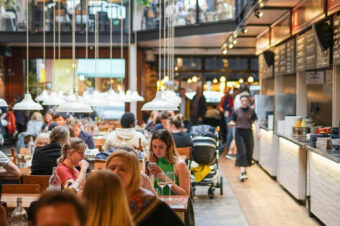

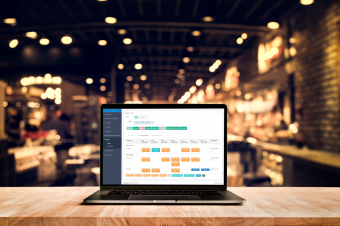

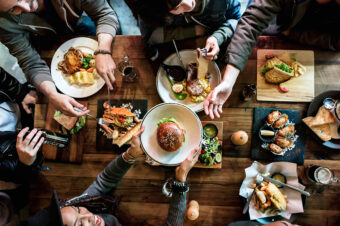
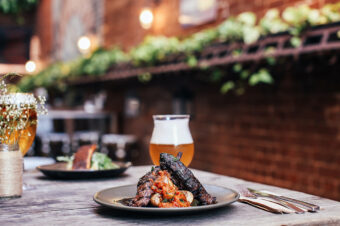

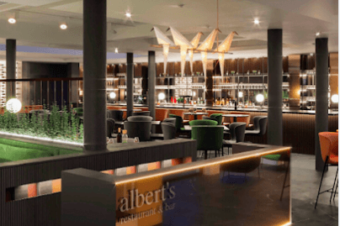
Leave a Reply